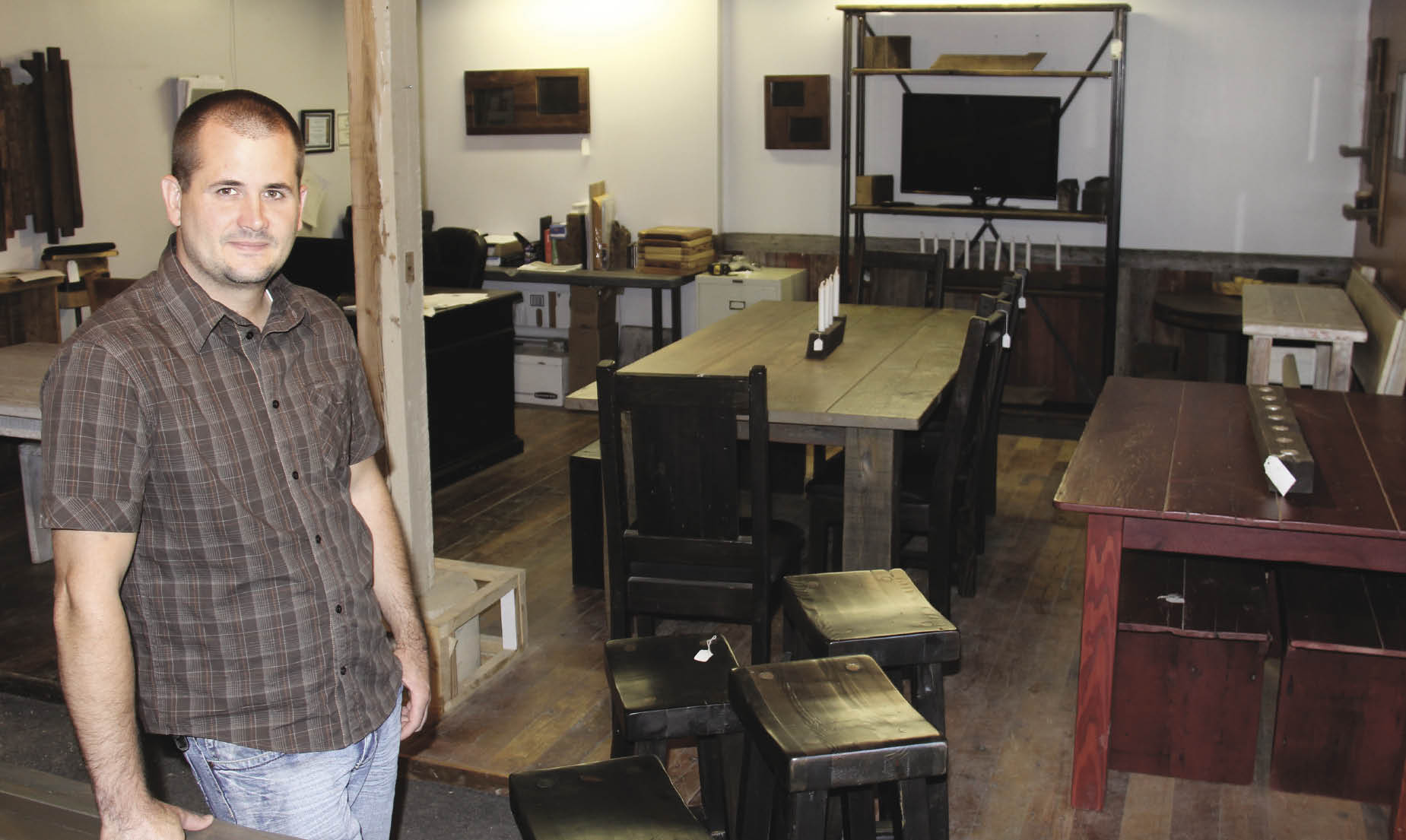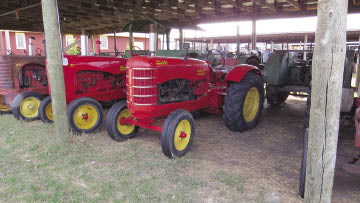“One of the things that we’re trying to do with as many of our products as possible is stay as local as we can.”
– JASON NEUFELD
Who would throw away a hardwood floor, or other valuable wood? More than you’d think.
Plenty of good wood, often of irreplaceable old fir and oak, ends up in landfills when buildings are torn down. Likewise, landowners clearing land for agriculture or development regularly bulldoze and burn old-growth trees. Then there’s Manitoba’s elm trees, destroyed in the thousands each year due to Dutch elm disease (DED). Elm was once a popular wood among furniture makers.
Read Also

Giant Canada geese have gone wild in Manitoba
Giant Canada geese are seemingly everywhere and can be fine table fare for local hunters, but 70 years ago, they were borderline extinct.
This wanton waste of perfectly good wood troubled custom woodworker Jason Neufeld, who lives on an acreage south of Winnipeg.
In 2005 he and friend Grant Dyck, a Niverville-area farmer, decided to do something about it, or rather, with it.
They launched Wood Anchor to find new uses for it, at the same time emphasizing environmental sustainability and rethinking the way resources are used.
“We were just coming across more and more and more that was just being landfilled or not used,” says Neufeld, who could also see the superb quality of this older wood.
Today he’s president of the fast-growing company now employing five people. He’s so busy they’ve switched to outsourcing almost all aspects of it, including sawing and milling lumber among local sawmill operators.
To start, they began sourcing wood. It wasn’t hard to find.
There were old wooden floors from churches and other buildings slated for demolition. Plenty of wood was available from demolished grain elevators. They stripped old boxcars and yanked beams from old barns.
They also put word out to landowners that they’d do selective harvesting on acres to be cleared and secured a contract with the City of Winnipeg for a supply of landfill-diverted American elm trees.
Then they began sawing and milling in a shop on Grant’s farm, creating custom-milled door and window casings, siding, flooring and general use lumber and at the same time started marketing their business concept at trade shows.
They put heavy emphasis on that, says Neufeld. They knew there was a market, but they also needed to educate buyers such as homebuilders, designers, and contractors about reclaimed wood.
“We’ve had to create this market for elm because no one else is selling this,” he said.
Their strategy is working.
They’ve now tapped strong demand for their product, finding buyers in both Canada and the U. S. The residential building market is the strongest inside Manitoba while most commercial sales are made beyond its borders.
Neufeld estimates they’re now processing wood volumes in excess of a million pounds a year. Not only is the company profitable, its sales have doubled every couple of months over the past year.
It’s the result of good timing as well as good product.
“It’s because of the whole green movement,” he says. “There was a lot of education to do at first as to what reclaimed wood was, and why we were utilizing it,” he says. But over this last year, people are coming to us.”
They sell mostly lumber and flooring for general use with elm flooring now their most popular product. The company will sell it for installation, or install it for customers using an ecologically friendly floor finish made with vegetable oil.
The company also produces an ever-changing number of products, a necessary function because their raw material is constantly changing, explains Neufeld. Right now, Wood Anchor is selling one-of-a-kind tables made from recycled grain elevator beams. When those are gone, they switch to something else.
So who’s buying reclaimed wood? Again, more than you’d think.
This is something valued by consumers who want product that’s locally produced, high quality, and made by companies that care about the environment, says Neufeld.
“People interested in these products are very educated about what they want,” he said. “They’re willing to pay for something that meets their standards.”
What meets their standards is Wood Anchor’s different approach. There are other companies reclaiming wood but they ship it off shore for reprocessing.
Wood Anchor has turned down offers from Chinese companies to do that, says Neufeld.
“It’s an ethical thing,” says Neufeld. “It’s not that we’re against doing business with China. But one of the things that we’re trying to do with as many of our products as possible is stay as local as we can.”
To learn more about Wood Anchor go to: www.woodanchor.com/Second
in a series: next week
– the sawmill business. [email protected]



















